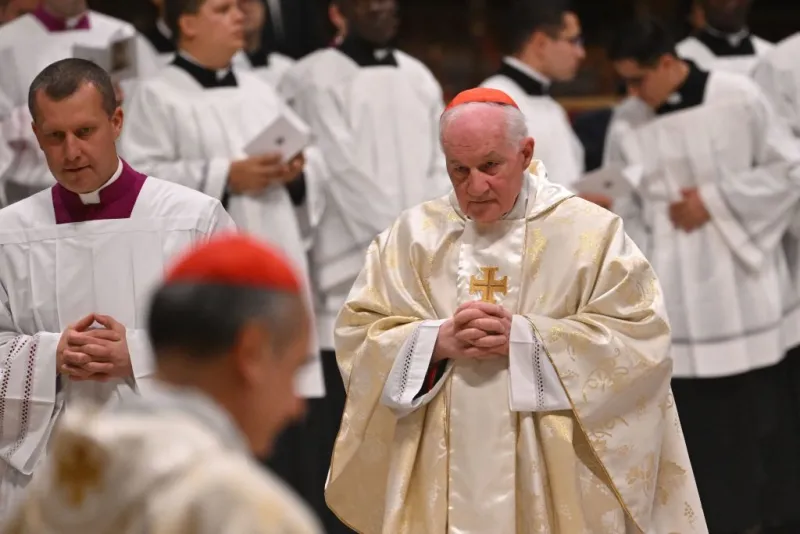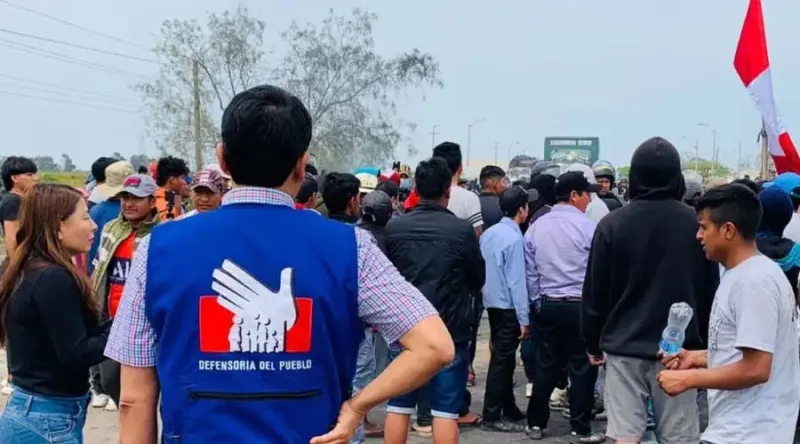 Canadian Cardinal Marc Ouellet atends the pope’s Mass for Our Lady of Guadalupe on Dec. 12, 2022, at St. Peter’s Basilica in the Vatican. / Photo by ANDREAS SOLARO/AFP via Getty Images
Canadian Cardinal Marc Ouellet atends the pope’s Mass for Our Lady of Guadalupe on Dec. 12, 2022, at St. Peter’s Basilica in the Vatican. / Photo by ANDREAS SOLARO/AFP via Getty Images
Denver, Colo., Dec 13, 2022 / 16:50 pm (CNA).
Cardinal Marc Ouellet has filed a defamation lawsuit in Quebec courts contending that a woman wrongly accused him of sexual assault in a class-action sex abuse lawsuit against the Archdiocese of Quebec.
“I have never been guilty of these reprehensible behaviors, much less of those alleged against other members of the clergy cited in the class action,” the cardinal said in a Dec. 13 statement accompanying the lawsuit. “This inappropriate association, intentionally constructed and widely spread for improper purposes, must be denounced.”
“Having preliminarily made sure to protect the plaintiff’s anonymity by obtaining an order to that effect, today I am taking legal action for defamation before the courts of Québec in order to prove the falsity of the allegations made against me and to restore my reputation and honor,” Ouellet said.
The 78-year-old cardinal served as archbishop of Quebec from 2002 to 2010. He is currently prefect of the Dicastery for Bishops, a key Vatican body that helps the pope evaluate prospective candidates to be named Catholic bishop.
Ouellet was accused of sexual assault by a woman identified pseudonymously as “F.” in an August class-action civil suit filed by multiple plaintiffs against the Archdiocese of Quebec.
The lawsuit against the archdiocese includes the testimony of 101 people who say they were sexually assaulted by clerics or Church staff from 1940 to the present. Eighty-eight clerics are accused in the suit.
Justin Wee, one of the lawyers who is representing the plaintiffs in the lawsuit, told CBC News his client “F.” had heard about the defamation lawsuit online. He had not seen the motion to initiate the lawsuit.
The Vatican, for its part, conducted a preliminary investigation in August. Pope Francis determined that there was not sufficient evidence to begin a canonical investigation against Ouellet for sexual assault.
The woman “F.” says that the cardinal, then archbishop of Quebec, inappropriately kissed or touched her on multiple occasions while she worked as a pastoral intern for the Quebec Archdiocese between 2008 and 2010. She alleged that the misconduct included kissing her and sliding his hand down her back to her buttock.
Ouellet’s defamation lawsuit was filed in the civil division of the superior court in the District of Montreal. It alleges that the “false allegations” against him “have caused and continue to cause serious damage” to the cardinal’s personal and professional reputation. He has also suffered “significant psychological anguish.”
His lawsuit seeks 100,000 Canadian dollars in compensatory damages, about $74,000.
“Any financial compensation that I may receive as a part of these proceedings will be donated in its entirety in support of the fight against the sexual abuse of the Indigenous peoples of Canada,” Ouellet said Tuesday.
According to the cardinal’s defamation lawsuit, the alleged incidents occurred at four different public events: a Sisters of Charity event in Beauport in the fall of 2008; a pastoral appointment ceremony in November 2008; a meeting at an event in a church basement; and during a diaconal ordination at a church in February 2010.
The defamation lawsuit says the cardinal “has no recollection of ever having met Mrs. F. He does not know her.” It says her accounts are inconsistent with the nature of the cardinal’s interactions in public settings. At these events, his lawsuit says, he would make a customary greeting “either by shaking hands or by a kiss on the cheek and would attempt to personalize each interaction in a manner consistent with the behavior of any person in a public representation role.”
His lawsuit further contends that even if the alleged acts took place, which the cardinal denies, they did not constitute “touching of a sexual nature” or sexual assault. It claims the accuser’s comments are contradictory.
The defamation lawsuit alleges another legal fault in that the allegations came in the context of “other allegations involving serious acts against minors.” The allegations against the cardinal are not of a similar nature to the sexual assault of minors by other clergymen alleged in the suit against the archdiocese.
“Ms. F. could not allege her story in such a procedural context,” the lawsuit says. “One may wonder why Ms. F.’s story is included among reprehensible acts of pedophilia, except to include a member of the high clergy in the case.”
“To have associated Mr. Ouellet with individuals who would have committed acts of such a nature constitutes negligence,” the defamation lawsuit continues. “This is so, because the ordinary citizen will perceive that all the reproaches made against the ecclesiastics named in the application are of the same nature, as they are grouped under the same procedure.”
“I firmly denied these slanderous and defamatory accusations unfairly made against me,” he added, citing his previous statement of Aug. 19.
“In truth, I want to emphasize that I never committed the acts of which the plaintiff accuses me,” he said Tuesday.
Ouellet said that sexual abuse victims need justice.
“It is clear that the victims of sexual abuse are entitled to just compensation for the harm they have suffered. I am sensitive to their suffering and reiterate my sincere closeness to them,” he said. “Their right to justice is not questioned by my taking this stand, which is nevertheless painfully necessary to defend the truth, my reputation, and my honor.”
The class-action lawsuit against the Quebec Archdiocese, filed Aug. 16, says that F. wrote to Pope Francis about Ouellet in January 2021. She received an email Feb. 23, 2021, stating that the Vatican had appointed Jesuit Father Jacques Servais to investigate the cardinal. Her last communication with Servais was the following month, March 2021.
Less than a week after the lawsuit was filed, the Vatican said it would not hold a trial against Cardinal Ouellet over the sexual assault allegations.
Servais, the Vatican investigator, said in August that “there are no grounds” to open an investigation into sexual assault. “Neither in his written report sent to the Holy Father nor in the testimony via Zoom that I subsequently took in the presence of a member of the Diocesan Ad Hoc Committee, did this person make an accusation that would provide grounds for such an investigation.”
Vatican spokesman Matteo Bruni added that after relevant consultations, Pope Francis “declares that there are insufficient elements to open a canonical investigation for sexual assault.”
Ouellet was ordained a priest of Quebec’s Diocese of Amos in 1968, at age 23. He joined the Sulpicians in 1972. In 2001 he was appointed secretary of the Pontifical Council for Promoting Christian Unity and consecrated a bishop.
He served as archbishop of Quebec from 2002 to 2010, when he was appointed prefect of the Congregation for Bishops and president of the Pontifical Commission for Latin America.
Ouellet has been outspoken about the need to prevent sex abuse by clergy and the need for sound formation of priests. He has advocated for the increased inclusion of women in the formation of priests and has said that priests need to know how to relate to women well to have a balanced personality.
[…]
 Representatives of the Ombudsman’s Office arrive to dissuade the protesters in Peru, December 2022. / Credit: ANDINA/Dissemination
Representatives of the Ombudsman’s Office arrive to dissuade the protesters in Peru, December 2022. / Credit: ANDINA/Dissemination


